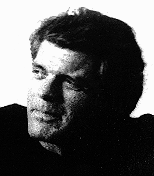 |
 |
Interview
BiographyBorn in 1945 in Newport Beach, California, Baltz is a well known photographer who came to prominence as part of the 'New Topographic' movement of the late 70's. He proposes a 'counter-aesthetic' of photography, seeking with a dispassionate, unsentimental eye, the beauty in desolate landscapes and forgotten places. His books and exhibitions, his "topographic work", such as The New Industrial Parks, Nevada, San Quentin Point, Candlestick Point (84 photographs documenting a public space near Candlestick Park, ruined by natural detritus and human intervention), exposing the crisis of technology and of man, had an enormous influence on a generation of photographers trying to define both objectivity and the role of the artist in photographs. Baltz aims to understand and describe the most hidden aspects of the world. Works such as the trilogy Ronde de Nuit, Docile Bodies, Politics of Bacteria, try to represent the multiple forms of control and power exercised over human beings. The story Deaths in Newport was produced as a book and CD-Rom in 1995. |
|||
| His works have been presented in numerous exhibitions around the world, and appear in
museums such as The Museum of Modern Art, Paris, Museum of Contemporary Art, Helsinki, San
Francisco Museum of Modern Art and The Whitney Museum of American Art, New York He writes for many reviews, and contributes regularly to L'Architecture D'Aujourd'hui. |
 |
